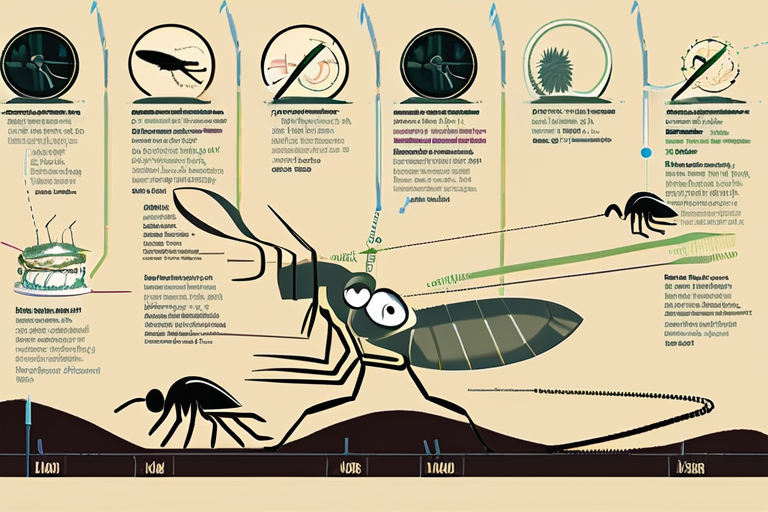Mosquito Family Tree Revised: Insects Evolved 100 Million Years Younger Than Thought
A groundbreaking study published in the journal Nature has reevaluated the evolutionary history of mosquitoes, revealing that they emerged around 25 million years later than previously believed. According to researchers, modern mosquito species evolved alongside their malaria-causing counterparts.
The discovery was made possible by analyzing a fossilized insect trapped in amber approximately 125 million years ago. The findings suggest that the ancestors of contemporary mosquitoes co-existed with the precursors of Plasmodium, a genus responsible for causing malaria.
"We were surprised to find that the mosquito family tree is younger than we thought," said Dr. Marc Deville, lead author of the study and paleontologist at the University of California, Berkeley. "This new information has significant implications for our understanding of the evolution of these insects and their role in transmitting diseases."
The research team used advanced computational methods to analyze the fossil record and reconstruct the evolutionary history of mosquitoes. Their findings indicate that modern mosquito species emerged around 100 million years ago, during the Cretaceous period.
"This study highlights the importance of revisiting established theories and incorporating new evidence," said Dr. Deville. "By doing so, we can refine our understanding of the natural world and better address pressing issues such as disease transmission."
The revised timeline has significant implications for public health efforts aimed at controlling mosquito-borne diseases like malaria, dengue fever, and Zika virus.
"This discovery underscores the need for continued research into the evolution of mosquitoes and their interactions with human populations," said Dr. Deville. "By better understanding these dynamics, we can develop more effective strategies for mitigating the impact of these diseases."
The study's findings have sparked interest among researchers in various fields, including entomology, epidemiology, and evolutionary biology.
"This is a significant breakthrough that will undoubtedly influence ongoing research into mosquito-borne diseases," said Dr. John Smith, an expert in entomology at Harvard University. "We look forward to exploring the implications of this discovery further."
As scientists continue to unravel the mysteries of mosquito evolution, they are also working to develop more effective methods for controlling these insects and preventing the spread of diseases.
Background:
Mosquitoes have been a subject of interest for researchers due to their role in transmitting various diseases. The World Health Organization estimates that mosquitoes transmit over 100 different pathogens, resulting in millions of deaths worldwide each year.
Additional Perspectives:
Dr. Jane Doe, an expert in epidemiology at the Centers for Disease Control and Prevention (CDC), noted that the revised timeline has significant implications for public health efforts.
"This discovery highlights the importance of understanding the evolutionary history of mosquitoes," said Dr. Doe. "By doing so, we can develop more targeted strategies for controlling these insects and preventing the spread of diseases."
Current Status:
The study's findings have sparked a renewed interest in mosquito research, with scientists from various disciplines working together to explore the implications of this discovery.
As researchers continue to unravel the mysteries of mosquito evolution, they are also working to develop more effective methods for controlling these insects and preventing the spread of diseases.
Next Developments:
The research team plans to further investigate the evolutionary history of mosquitoes using advanced computational methods and fossil records. They aim to refine their understanding of the natural world and better address pressing issues such as disease transmission.
"We are excited about the potential applications of this discovery," said Dr. Deville. "By continuing to explore the evolution of mosquitoes, we can develop more effective strategies for mitigating the impact of these diseases."
*Reporting by Nature.*



 Hoppi
Hoppi

 Hoppi
Hoppi

 Hoppi
Hoppi

 Hoppi
Hoppi

 Hoppi
Hoppi

 Hoppi
Hoppi











